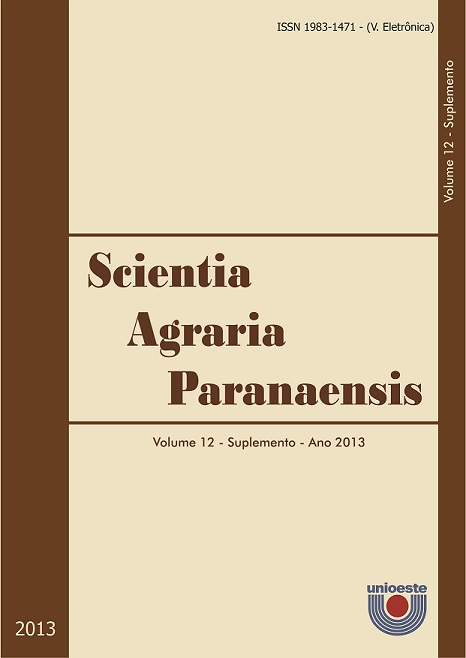Sacolas retornáveis - o solo como ferramenta de educação ambiental
DOI:
https://doi.org/10.18188/sap.v12i0.9565Keywords:
conscientização ambiental, consumo responsável, poluição do soloAbstract
Generally, the people have an attitude of lack of awareness and sensitivity to the soil, which contributes to their degradation, either by misapplication, whether by its disorganized occupation. The problem around soil conservation in most cases has been neglected by people. The consequence of this neglect is the continued growth of environmental problems related to land degradation, such as erosion, pollution, landslides, siltation of water ways. Faced with the need to demonstrate to students the importance of soil in maintenance of life and preserving the ecosystem is that it was drawn up environmental education project focusing on soils. The project began in 2011, in the Western Paraná State University. This article aims to describe one of the activities in environmental education project titled reusable bags. This project is destined for the student public of elementary and high schools and the general community. The project was developed by various entities and is being developed in the city of Marechal Cândido Rondon. At the end of the project were distributed ten thousand bags to customers of supermarkets project participants and held seven lectures, with total audience of three hundred and fifty students.
Downloads
Published
How to Cite
Issue
Section
License
Aviso de Direito Autoral Creative Commons
Política para Periódicos de Acesso Livre
Autores que publicam nesta revista concordam com os seguintes termos:
1. Autores mantém os direitos autorais e concedem à revista o direito de primeira publicação, com o trabalho simultaneamente licenciado sob a Licença Creative Commons Attribution que permite o compartilhamento do trabalho com reconhecimento da autoria e publicação inicial nesta revista.2. Autores têm autorização para assumir contratos adicionais separadamente, para distribuição não-exclusiva da versão do trabalho publicada nesta revista (ex.: publicar em repositório institucional ou como capítulo de livro), com reconhecimento de autoria e publicação inicial nesta revista.
3. Autores têm permissão e são estimulados a publicar e distribuir seu trabalho online (ex.: em repositórios institucionais ou na sua página pessoal) a qualquer ponto antes ou durante o processo editorial, já que isso pode gerar alterações produtivas, bem como aumentar o impacto e a citação do trabalho publicado (Veja O Efeito do Acesso Livre).
Licença Creative Commons
Esta obra está licenciada com uma Licença Creative Commons Atribuição-NãoComercial-CompartilhaIgual 4.0 Internacional, o que permite compartilhar, copiar, distribuir, exibir, reproduzir, a totalidade ou partes desde que não tenha objetivo comercial e sejam citados os autores e a fonte.


